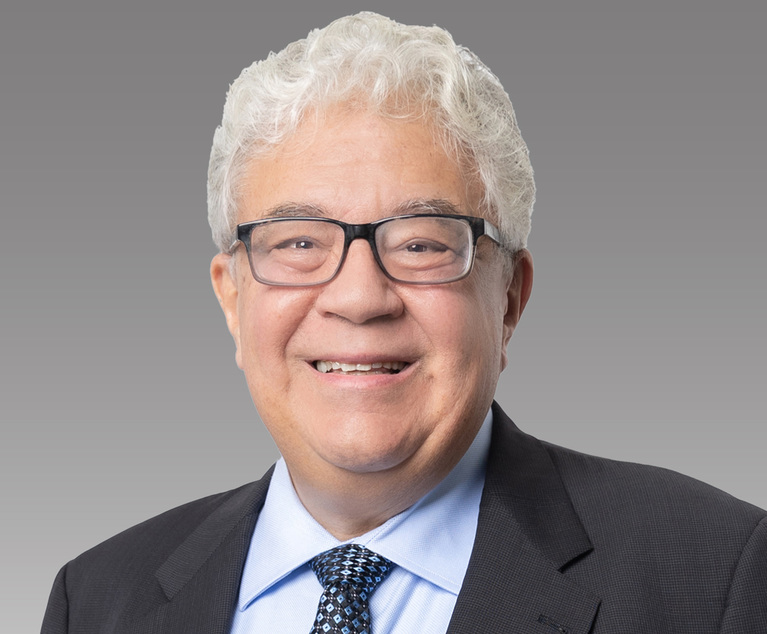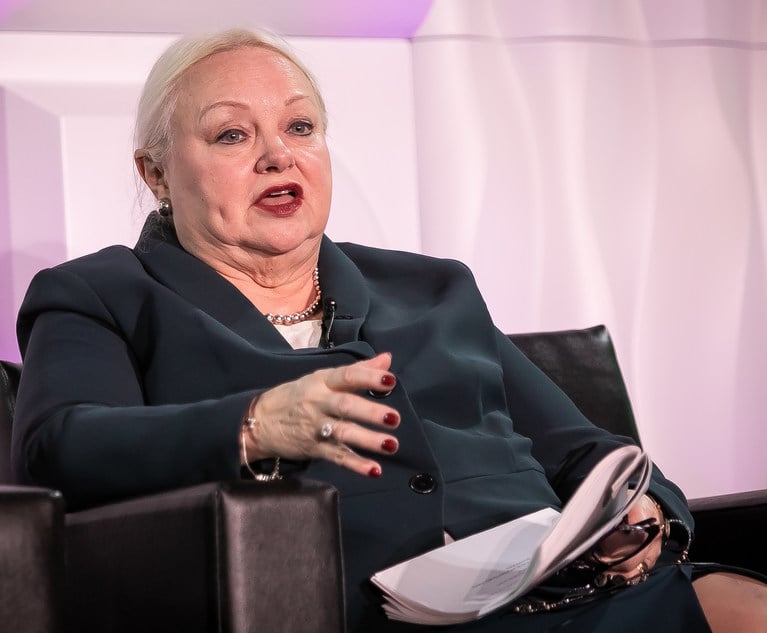 Vasilios J. Kalogredis of Lamb McErlane. Courtesy photo
Vasilios J. Kalogredis of Lamb McErlane. Courtesy photo Trends and Considerations of Practice Transactions in Health Care
Understanding the reasons for and goals to be accomplished by a transaction can help an adviser to a doctor narrow down which transaction structure (e.g., merger or sale/acquisition) would be in the best interests of one's client.
October 28, 2024 at 12:00 PM
5 minute read
No matter the region, medical and dental practice sales are common and take place for a myriad of reasons in a manner that best suits the selling practitioner's goals and objectives. Often, physicians sell their practices to hospitals, health care systems, private equity, practice management companies and similar organizations and continue to practice as an employee of the acquirer thereafter. Another option considered by many practitioners is to become part of a larger, independent medical group through a merger where the medical practice is controlled and owned by physicians. Practitioners also engage in practice sales for the purpose of succession planning and preparing for retirement where the practitioners choose to sell their practices to another younger solo-practitioner who then employs the senior practitioner on a wind-down basis until retirement. Understanding the reasons for and goals to be accomplished by a transaction can help an adviser to a doctor narrow down which transaction structure (e.g., merger or sale/acquisition (collectively "practice transaction")) would be in the best interests of one's client.
One thing to be cognizant of for solo practitioner and small group practice clients is the lack of protection in the event of death, illness, disability or retirement. In too many cases, physicians become absent for extended periods due to disability and, in some cases, they pass away without a clear plan of practice transitioning in place. In these circumstances, their practices were often decimated from greatly reduced volume and economic standpoints, shifting from being an asset to becoming a liability.
NOT FOR REPRINT
© 2025 ALM Global, LLC, All Rights Reserved. Request academic re-use from www.copyright.com. All other uses, submit a request to [email protected]. For more information visit Asset & Logo Licensing.
You Might Like
View All
Longtime Reed Smith Health Care Partner Opts for Solo Practice Over Retirement
3 minute read
Hospital Must Provide Pre-Complaint Discovery in Privacy Breach Case, Pa. Judge Rules
4 minute read
Judge Approves $25M Medical Monitoring Settlement Over Philips CPAP Devices
3 minute read
The Essential Role of Partnership Agreements in Health Care Private Practices
6 minute readLaw Firms Mentioned
Trending Stories
- 1'It's Not Going to Be Pretty': PayPal, Capital One Face Novel Class Actions Over 'Poaching' Commissions Owed Influencers
- 211th Circuit Rejects Trump's Emergency Request as DOJ Prepares to Release Special Counsel's Final Report
- 3Supreme Court Takes Up Challenge to ACA Task Force
- 4'Tragedy of Unspeakable Proportions:' Could Edison, DWP, Face Lawsuits Over LA Wildfires?
- 5Meta Pulls Plug on DEI Programs
Who Got The Work
Michael G. Bongiorno, Andrew Scott Dulberg and Elizabeth E. Driscoll from Wilmer Cutler Pickering Hale and Dorr have stepped in to represent Symbotic Inc., an A.I.-enabled technology platform that focuses on increasing supply chain efficiency, and other defendants in a pending shareholder derivative lawsuit. The case, filed Oct. 2 in Massachusetts District Court by the Brown Law Firm on behalf of Stephen Austen, accuses certain officers and directors of misleading investors in regard to Symbotic's potential for margin growth by failing to disclose that the company was not equipped to timely deploy its systems or manage expenses through project delays. The case, assigned to U.S. District Judge Nathaniel M. Gorton, is 1:24-cv-12522, Austen v. Cohen et al.
Who Got The Work
Edmund Polubinski and Marie Killmond of Davis Polk & Wardwell have entered appearances for data platform software development company MongoDB and other defendants in a pending shareholder derivative lawsuit. The action, filed Oct. 7 in New York Southern District Court by the Brown Law Firm, accuses the company's directors and/or officers of falsely expressing confidence in the company’s restructuring of its sales incentive plan and downplaying the severity of decreases in its upfront commitments. The case is 1:24-cv-07594, Roy v. Ittycheria et al.
Who Got The Work
Amy O. Bruchs and Kurt F. Ellison of Michael Best & Friedrich have entered appearances for Epic Systems Corp. in a pending employment discrimination lawsuit. The suit was filed Sept. 7 in Wisconsin Western District Court by Levine Eisberner LLC and Siri & Glimstad on behalf of a project manager who claims that he was wrongfully terminated after applying for a religious exemption to the defendant's COVID-19 vaccine mandate. The case, assigned to U.S. Magistrate Judge Anita Marie Boor, is 3:24-cv-00630, Secker, Nathan v. Epic Systems Corporation.
Who Got The Work
David X. Sullivan, Thomas J. Finn and Gregory A. Hall from McCarter & English have entered appearances for Sunrun Installation Services in a pending civil rights lawsuit. The complaint was filed Sept. 4 in Connecticut District Court by attorney Robert M. Berke on behalf of former employee George Edward Steins, who was arrested and charged with employing an unregistered home improvement salesperson. The complaint alleges that had Sunrun informed the Connecticut Department of Consumer Protection that the plaintiff's employment had ended in 2017 and that he no longer held Sunrun's home improvement contractor license, he would not have been hit with charges, which were dismissed in May 2024. The case, assigned to U.S. District Judge Jeffrey A. Meyer, is 3:24-cv-01423, Steins v. Sunrun, Inc. et al.
Who Got The Work
Greenberg Traurig shareholder Joshua L. Raskin has entered an appearance for boohoo.com UK Ltd. in a pending patent infringement lawsuit. The suit, filed Sept. 3 in Texas Eastern District Court by Rozier Hardt McDonough on behalf of Alto Dynamics, asserts five patents related to an online shopping platform. The case, assigned to U.S. District Judge Rodney Gilstrap, is 2:24-cv-00719, Alto Dynamics, LLC v. boohoo.com UK Limited.
Featured Firms
Law Offices of Gary Martin Hays & Associates, P.C.
(470) 294-1674
Law Offices of Mark E. Salomone
(857) 444-6468
Smith & Hassler
(713) 739-1250





